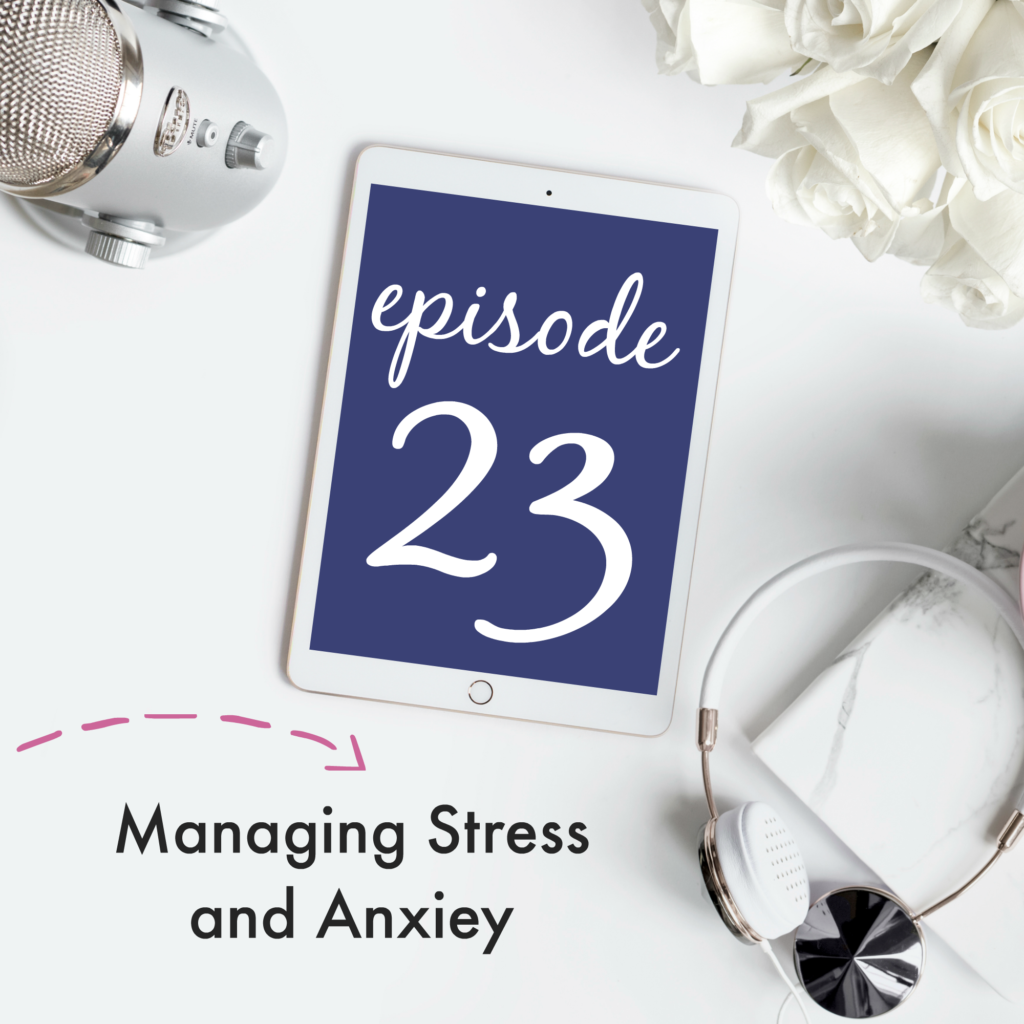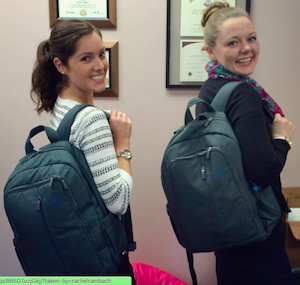
Going into our meetings the other day, Rachel and I were both feeling a little off. Everything felt unbalanced and like all of the different plates we had spinning could quickly fall to the floor. We were both feeling on-edge, frustrated, overwhelmed and anxious. We initially had no intention to record and episode.
However, we decided that instead of avoiding all of the different feelings we were having, we were going to open up and be incredibly honest and vulnerable by sharing our thoughts with you.
Rachel and I are both dealing with a lot of things at both work and home. We both have our individual personal stressors on top of everything we have going on in our work life together. Usually, handling things within our business or even personal lives isn’t a problem because there are specific things we can do to handle most issues and resolve them quickly.
This week, though, things felt different. When we met, we quickly realized that the stress we were both carrying was surrounding things out of our control. The issues we are facing don’t have specific task lists where we can just check things off. Instead, we have bigger issues that will have to resolve themselves over a longer period of time. While we we wait, there’s not a whole lot we can do.
Rachel and I both tend to be very action oriented people who like to get things done and see progress. When we have situations where we have to trust other people to take actions, wait for things to pan out on their own, or put off decisions because we don’t have the right information and can’t get it ourselves, we tend to get a little more anxious. We both tend to think about the worst-case scenarios or outcomes and worry more when things are out of our control and there’s nothing we can do about it.
When things feel out of control, it’s easy for my anxiety to skyrocket and get the best of me. Rachel and I have both dealt with anxiety, panic attacks, and depression and understand how important it is to develop coping mechanisms and simply discuss this topic. Throughout the episode Rachel and I talk about our individual stressors (both positive and negative) as well as some of the ways we deal with anxiety.
Here is a brief description of some of the points we covered when talking about how we personally deal with anxiety. Check out the full episode for a more in depth explanation of how we use these techniques.
History. First, we recognize that everything’s going to be ok. We take time to look back and reflect on similar moments that have had positive outcomes. This helps us realize that it WILL all work out.
Mantras. We use mantras, affirmations, and positive reminders to get us in the right mind set.
Reframing. When Rachel’s stuck in a negative headspace, she tries turning her view of the situation around and thinking about the best possible outcome. When you focus on the positive outcome, you end up working even harder toward your goals.
Accountability. Rachel and I act as each other’s accountability partners. We work together to always keep our eye on our goals and recognize the achievements we’ve already made and the goals we are currently reaching. We point out the positive things that have been accomplished already.
Venting. We create a safe space together so we can have some relief and feel a little validation by simply opening up and getting things off our minds.
Honesty. My anxiety compounds when I haven’t been honest with the people around me or I have to have tough conversations. Being as up front and honest in my everyday interactions helps me to keep my anxiety to a minimum.
Presence. Being in the moment and dealing with things as they come my way helps me to feel less overwhelmed and more in tune with everything around me. Realizing that you only have this moment and that you get to choose your mindset it liberating. I remind myself to, “Do what you can and do it right now.”
Get it Out. Whether that looks like journaling, blogging, podcasting, talking to a friends, etc., getting things out of your head helps you to process in a more appropriate and objective manner.
Do Something Different. Creating a change in your physical state or environment is a great way to get out of your own head or change your mentality. Engaging in a different activity or moving on to a new project creates a shift and helps break a negative cycle.
Create Space. Put distance between you and whatever may be causing you anxiety by creating time for yourself and realizing that what ever you are dealing with does not define you.
Treat Yourself. Do something special, just for you, that makes you feel like your most amazing, boss self.
Awareness. Know what your triggers are and what your anxiety feels like so you can learn how to best deal with it. Know your boundaries and what your personal limits are so you can best handle situations that may cause you to feel anxious.
Practice. Realize that big changes are not made over night. Choosing a different mindset, using new coping mechanisms, and dealing with anxiety take a huge amount of practice and patience.
Be Proactive. Being proactive in your self-care and mental health care instead of reactive sets you up to be the most successful. Do what you need in your life to make yourself feel the best your possibly can.
Taking care of ourselves and managing our stress/anxiety is so important, especially because we work with so many people and serve in a variety of roles for those people. We know that the way that you are feeling impacts how you interact with everyone around you. You cannot fully show up for the other people in your life unless you are dealing with your own “stuff”.
We hope you found this episode helpful and relatable. We’d love to hear about your coping mechanisms and what you do when you are dealing with stress or anxiety.
Until Next Time,
Katey & Rachel
